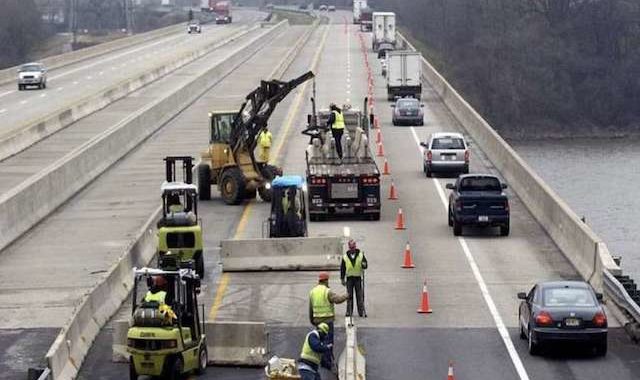In his 2018 campaign, Governor Mike DeWine promised to investigate possible shortfalls in Ohio’s infrastructure budget with a “blue ribbon” commission. Keeping this promise, he convened the Advisory Committee on Transportation Infrastructure on January 28th.
The committee, comprised of 15 stakeholders in Ohio transportation and infrastructure, reviewed various options to address what ODOT Director Jack Marchbanks is calling, “a perfect storm of adverse fiscal developments and spending,” before making its recommendation to the governor’s office.
Governor DeWine has faced pressure to consider a gas tax hike from outside groups since he took office. In a report issued last week, they recommended to the governor’s office an increase to the state’s gasoline tax.
As we’ve previously covered, the gas tax is inherently a regressive sales tax which, if increased, would hurt Ohio’s lowest earners the most. Coupled with the fact that gas tax hikes have historically done little to address state budget shortfalls, an increase to the gas tax in 2019 would unnecessarily hurt Ohioans wo are struggling the most with little to show for it.
The committee erroneously refers to the gas tax as a “user fee,” throughout its report. Compared to a tax which is imposed upon a general population, user fees are voluntary payments made by individuals in exchange for a good or service. User fees must also directly relate to a particular good or service. As Alex Marshall writes in Governing, “once I do pay the gas tax, I can use one stretch of road or a bridge as many times as I like with no additional charge. That’s not a user fee. There’s a reason the gas tax is called a tax—because it is one.”
If the gas tax were in fact a user fee, it would be doing a better job of keeping up with infrastructure costs in Ohio and throughout the country. Instead, the gas tax covered only 43 percent of total spending on state and local roads.
This misguided view of the gas tax should not be used to justify an increase that will serve only to hurt Ohio’s already worst off.
Despite recommending a gas tax hike, the Advisory Committee on Transportation Infrastructure chose not to comment on how much it should be increased by. On Thursday, Governor DeWine unveiled a proposal to increase the gas tax by 18 cents and index it to inflation annually.
The Ohio Department of Transportation presented this proposal to the 133rd General Assembly, who have until March 31st to pass it. Democrats and Republicans alike question the fairness and feasibility of the plan.
The Buckeye state has reaped the rewards of common sense tax reform, and an increase to the gas tax would serve to undue much of its benefits. Ohio legislators must demonstrate the harmful nature of this proposal to the Governor, put the interests of Ohioans first, and reject this gas tax hike.
